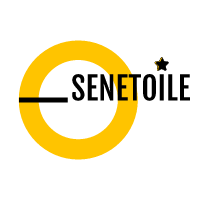Fast backlinks and Guest-post hosting
PRESS RELEASE Investment environment key to closing Africa’s energy gap, says Standard Bank
Standard Bank and General Electric today reaffirmed their commitment to Africa at a power financing roundtable held in Washington DC
JOHANNESBURG, South-Africa, August 5, 2014/ -- Standard Bank (http://www.standardbank.com), Africa’s largest lender by assets, and General Electric today reaffirmed their commitment to Africa at a power financing roundtable held in Washington DC. The partnership sees both parties aiming to bridge the power financing gap in Africa and forms part of the US Africa Leaders’ Summit, the largest gathering of African heads of state and government as well as key stakeholders to visit Washington on any one occasion.
Download the infographic: http://www.apo-mail.org/
Photo: http://www.photos.apo-opa.com/
Logo: http://www.photos.apo-opa.com/
The strategic partnership has already seen both companies commit to a $350 million financing agreement aimed at improving access to power infrastructure in Africa. Africa needs to add an extra 300 gigawatts (GW) of power generating capacity over the next 15 years in order to meet demand which is expected to grow at an average annual rate of 3% over the next two decades. According to the International Energy Agency, sub-Saharan Africa requires more than $300bn in investment to achieve universal electricity access by 2030.
Mr Sim Tshabalala, Chief Executive Standard Bank Group, says solutions to meet Africa’s growing energy demands will only be possible once developers, governments and funders reach a common understanding of the risks, pricing and regulatory imperatives needed to facilitate the required investment.
"There are significant opportunities and a viable investment case for governments across Africa to provide the lion's share of long tenor debt funding given the solid returns on investments in power generation and distribution.”
Mr Tshabalala says "Standard Bank works with investors to offer them a sustainable and structured model to finance power and infrastructure projects appropriately. On-going strategic partnerships with stakeholders like GE, allows us the opportunity to provide access to energy across the continent. In tandem, we are also playing an active role in supporting the policy reform process that should facilitate additional private sector investment in power.”
Africa’s inadequate power infrastructure is a serious constraint to sustained growth and creates significant transaction costs for firms operating on the continent, which is home to 15% of the world’s population yet produces just 3% of the its energy output.
Decades of inadequate investment in infrastructure along with a lack of policy clarity and poor planning by regional governments means that many sub-Saharan African countries continue to battle inadequate power supply. Power outages cost more than 5% of gross domestic product (GDP) in Malawi, Uganda and South Africa; and between 1 and 5% of GDP in Senegal, Kenya and Tanzania.
While the continent has seen heavy investment in the natural resource sector, global investors are quickly realising the potential benefits of investments in other sectors such as power and infrastructure. Financial institutions such as Standard Bank are pioneering innovative funding solutions to help close the energy gap on the continent.
"Standard Bank's view is that there are many financing options on the table, if the economic opportunity is considered seriously,” said Mr Tshabalala. “For example, new generation planning requires a complete financial model. Critical to success is the need for greater certainty in terms of creating environments conducive to investment which then makes it easier to attract the required investment into the sector, especially within emerging markets.”
He cautions however, that in terms of pricing, there are still many hurdles to overcome. One example is where power tariffs are set below the replacement cost of production, which then acts as a disincentive to investment in new plants.
"The bottom line is that African governments need to take these harsh economic realities into consideration and advance sector reforms,” said Mr Tshabalala. “Only then will they boost their access to capital markets and better position themselves to fund the large-scale power developments that are crucial to their economic futures."
Distributed by APO (African Press Organization) on behalf of Standard Bank.
Media contact
Kate Johns
Group Communications | Africa Media Relations
Tel: +27 11 721 8406 | Mobile: +27 82 805 0210
Cette adresse e-mail est protégée contre les robots spammeurs. Vous devez activer le JavaScript pour la visualiser. | www.standardbank.co.za www.standardbank.com
About Standard Bank Group
Standard Bank (http://www.standardbank.com), trading as Stanbic Group, is the largest African bank by assets and earnings. Our strategy is to build the leading African-focused financial services organisation using all our competitive advantages to the full. We will focus on delivering superior sustainable shareholder value by serving the needs of our customers through first-class, on-the-ground operations in chosen countries in Africa. We will also connect other selected emerging markets to Africa and to each other, applying our sector expertise, particularly in natural resources, globally. We operate in 20 countries on the African continent, including South Africa.
Standard Bank has a 151-year history in South Africa and started building a franchise outside southern Africa in the early 1990s. In recent years, Standard Bank has concluded key acquisitions on the African continent in Kenya and Nigeria. Africa is at our core and we will continue to build first-class on-the-ground banks.
The group’s nearly 49 000 employees in all regions deliver a complete range of services across personal and business banking, corporate and investment banking and wealth management. Standard Bank's Corporate & Investment Banking division offers its clients banking, trading, investment, risk management and advisory services to connect selected emerging markets to Africa and to each other. It has strong offerings in mining and metals; oil, gas and renewables; power and infrastructure; agribusiness; telecommunications and media; and financial institutions.
Normalised headline earnings for 2013 were R17.2 billion (about USD 1.8 billion) and total assets were R1 694 billion (about USD 162 billion). Standard Bank’s market capitalisation at 31 December 2013 was R209.4 billion (about USD20 billion).
The group’s largest shareholder is Industrial and Commercial Bank of China (ICBC), the world’s largest bank, with a 20,1% shareholding. In addition, Standard Bank Group and ICBC share a strategic partnership that facilitates trade and deal flow between Africa, China and select emerging markets.
For further information go to http://www.standardbank.com
Or if related to CIB deals:
For further information go to http://www.standardbank.com/
SOURCE
Standard Bank








